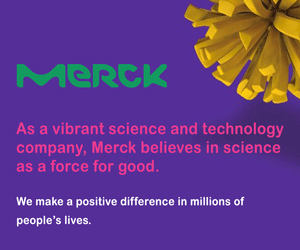1MG FlippingBooks
HIGHER CALLING
Glenn Keys
Pursuing profit while serving a social purpose are not mutually exclusive. Here’s why having a heart could be good for business.

Businesses everywhere are looking for a new and different way to engage customers, staff, shareholders and the broader community. Over the years companies have tried to use Corporate Social Responsibility (CSR) to win over these four key stakeholders. Unfortunately, it has tended to fail, principally because CSR was not fundamental to the company’s DNA, but a marketing tool that would be discarded as soon as there was pressure on the bottom line, and customers, staff and the community saw through this veneer. However, companies that are serious about contributing to their community have proven that a core social purpose appeals to customers, staff, community and shareholders.
A social purpose business has been defined as “a company whose enduring reason for being is to create a better world.” Social purpose in a commercial context needs differentiation from the driving force behind social enterprises or not-for-profit organisations. Commercial entities must remain sustainable and profitable, necessitating the development of strategy around social purpose.
The benefits of doing so are threefold:
• Staff. Benefits include low turnover rates, high productivity and a high rate of staff-generated ideas around business activities.
• Customers. They will share your company’s values and feel uplifted by their association with a socially responsible enterprise.
• Company. The benefits of the above two points flow on in the shape of contract extensions, successful rebids or new business lines, as well as improved employee retention.
“Intrapreneurs” are staff stimulated by their employer’s aims and environment to produce innovative ideas that benefit the entire company mission.
There are many common misconceptions around social purpose in a commercial context, one being that social purpose and CSR are the same. Within a business, CSR is typically driven by senior management or the marketing division, and is usually one of the first activities to be jettisoned when finances tighten. Social purpose, on the other hand, is deeply embedded in the company regardless of financial outlook so that profit is not sacrificed at the altar of social responsibility.
The founder and esteemed “grandfather” of business and management analysis, Professor Peter Drucker, wrote more than 20 books on this subject which remain seminal references. One of these, solely devoted to charities, laid bare how poorly many such organisations were managed in the 1950s and called for an infusion of private-sector rigour and management acuity. Commercial goals driven by social purpose emerged over subsequent decades as one solution to the problems Drucker described. Follow these steps to develop a social-purpose strategy for your company:
• Ask, can my business have a social purpose from day one of operations?
• Identify the social imperatives your company could meaningfully influence
• Ensure your social purpose is consistent with your company and brand
• Align the social purpose with stakeholder, shareholder and customer needs
• Set goals for what you hope to achieve in the social space.
At Aspen Medical, we engage our staff at a personal level through our workplace giving program. Staff can donate up to $750 to a chosen charity from their pre-tax earnings each year and have donations matched. We take the same approach to supporting staff fundraising initiatives, having matched our staff's donation of $30,000 for a women’s refuge centre. We also offer staff two additional days’ leave each year so they can volunteer for a chosen charity.
Our customers’ wellbeing is also central to our business. For more than 10 years, we have been the Department of Health provider of the Remote Area Health Corps (RAHC), which offers health professionals short-term placements in remote Indigenous communities. In addition, we have funded numerous health campaigns around trachoma, crusted scabies and rhematic heart disease. We also have well-developed Indigenous nursing, allied health and Bachelor of Medicine scholarship programs, all internally funded.
Clearly, having a core social purpose that aligns with your business goals also encourages engagement from more stakeholders, including staff, customers, and shareholders.
Glenn Keys is the founder and executive chairman of Canberra-based Aspen Medical, one of the world's leading providers of outsourced healthcare solutions. He has placed social responsibility and community involvement at the heart of Aspen Medical's culture.










